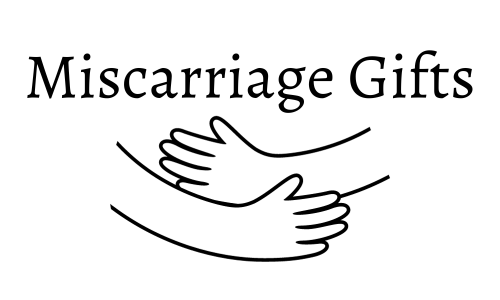Learning that a friend has experienced a miscarriage can leave you feeling uncertain about how to respond. You want to offer support and comfort, yet you may also be unsure of the best way to do so. In this comprehensive guide, we'll explore practical ways to show support while respecting your friend's privacy and emotional needs.
Dos:
- Express Genuine Empathy: Begin by expressing genuine empathy for your friend's situation. Let them know that you are there for them and that you care deeply about their well-being. A heartfelt message such as, "I'm so sorry for your loss. Please know that I am here for you in any way you need," can provide comfort and reassurance during a difficult time.
- Listen with Compassion: Create a safe and non-judgmental space for your friend to express their feelings. Practice active listening by giving them your full attention and validating their emotions. Avoid offering advice or trying to fix the situation—simply being there to listen can be incredibly supportive.
- Offer Practical Assistance: Consider offering practical assistance to help alleviate some of the burdens your friend may be facing. This could involve tasks such as running errands, preparing meals, or looking after their other children. By offering tangible support, you can provide much-needed relief during a challenging time.
- Respect Their Privacy: Respect your friend's privacy and boundaries regarding who they want to share the news with. Before discussing their miscarriage with others, ask for their permission and ensure that they are comfortable with the idea. Respecting their wishes demonstrates your understanding and respect for their feelings.
- Check In Regularly: Make an effort to check in on your friend regularly to see how they are coping and to offer ongoing support. Even a simple text message or phone call to let them know that you are thinking of them can provide comfort and reassurance during a difficult time.
Don'ts:
- Minimize Their Grief: Avoid minimizing your friend's grief by offering platitudes or attempting to find a silver lining in their loss. Comments such as, "It wasn't meant to be" or "You can try again," can come across as dismissive and invalidate their feelings. Instead, acknowledge the depth of their pain and offer your unconditional support.
- Offer Unsolicited Advice: Refrain from offering unsolicited advice or attempting to provide explanations for why the miscarriage occurred. Your friend may already be grappling with feelings of guilt or confusion, and offering advice can feel dismissive or unhelpful. Instead, focus on being a compassionate listener and offering emotional support.
- Compare Experiences: Avoid comparing your friend's experience to your own or to others'. Every miscarriage is unique, and comparing experiences can minimize your friend's feelings and make them feel invalidated. Instead, focus on validating their emotions and offering your unwavering support.
- Dismiss Their Feelings: Avoid dismissing or invalidating your friend's feelings by downplaying the significance of their loss. Comments such as, "You'll get over it soon" or "At least you weren't further along," can be hurtful and dismissive of their grief. Instead, validate their emotions and offer your unconditional support.
Practical Advice:
- Send a Thoughtful Gesture: Consider sending a sympathy card, angel figurine, memorial memorial, or a care package to let your friend know that you are thinking of them. A small gesture such as a meaningful miscarriage gift can go a long way in showing your support and letting your friend know that they are not alone in their grief.
- Offer to Listen: Let your friend know that you are available to listen whenever they need to talk. Sometimes, just having someone to listen can provide immense comfort and validation during a difficult time. Encourage your friend to express their feelings openly and without fear of judgment.
- Respect Their Wishes: Respect your friend's wishes regarding how they want to cope with their miscarriage. Some may want to talk about it openly and seek support from friends and family, while others may prefer to grieve privately. Regardless of their preferences, let your friend know that you are there to support them in whatever way they need.
- Educate Yourself: Take the time to educate yourself about miscarriage and its impact on emotional well-being. Understanding the physical and emotional aspects of miscarriage can help you provide better support to your friend and demonstrate your compassion and empathy.
Supporting a friend through miscarriage requires sensitivity, empathy, and respect for their privacy and emotional needs. By expressing genuine empathy, offering practical assistance, and avoiding common pitfalls, you can provide meaningful comfort and support to your friend during this difficult time. Remember to listen with compassion, respect their boundaries, and offer ongoing support as they navigate their grief journey. Your presence and support can make a world of difference in helping your friend feel loved, supported, and understood during this challenging time.

2 comments
I have seen people try to compare their experiences and life situations with a mother after a miscarriage, and it just makes the mother feel worse. You can’t compare feelings and emotions. A meaningful gift can say more than words anyway, and shows you see them and validates their feelings.
It can be hard to balance giving a friend space and respecting boundaries and also being sure to check in. Giving them a miscarriage gift is definitely not something everyone thinks of, and it can mean so much to acknowledge their grief. Just being present for them when they need it helps them feel supported.